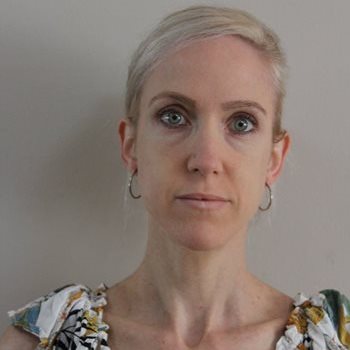
Dr Jennalee Donian
Jennalee Donian is a postdoctoral research fellow with research interests in the politics of contemporary humour and comedy, psychoanalytic theory, film studies, and literary studies. After completing her doctorate in Philosophy in 2018, with a focus on comedy and humour in the context of neoliberal capitalism, she published her manuscript with Lexington Books in America the next year – Taking Comedy Seriously: Stand-Up’s Dissident Potential in Mass Culture (2019). She has since been trying to increase academic interest in humour and comedy in South Africa by presenting at seminars and conferences, and writing articles with a focus on comedy in the South African context and/or South African comedians. She has won a number of scholarships and fellowship from both national and international institutes. Additionally, she is an emerging researcher in South African humour and comedy, particularly from a critical theoretical and political perspective, as is evidenced by her publications. Furthermore, her interdisciplinary background (in English Literature, Media/Cultural Studies and Philosophy) provides her with the contextual foundation from which to launch a wider interrogation of humour, in particular its socio-political functions in terms of peacebuilding and reconciliation, as is required for her postdoctoral project at Nelson Mandela University.
Synopsis of Postdoctoral Study
Title: The Power of Humour in Peacebuilding and Reconciliation in Post-Apartheid South Africa
Amid this grim existential reality, comedy appears as a trivial concern, if not an outright distraction. However, numerous studies have illustrated humour’s capacity to inform positive social change in multiple ways: as a tool for fostering a sense of community and building positive relations (Bergson 1990; Billig 2005; Morreall 1983); as a coping mechanism amidst social ills (Lefcourt 2001); as an escape-valve for the outlet of repressed feelings (Freud 1905/2014); as a process tool to reframe or reinterpret conflict or trauma (Beeney 2009); as a catalyst for breaking down racial and cultural barriers (Donian & Holm 2021); and as a form of social protest (Bakhtin 1984; Higgie 2017; Holm 2017; Rossing 2012) . Such research speaks to humour’s facility to encourage productive, innovative and cathartic outcomes. Thus humour has the capacity to be an important part of the toolkit by which increasingly complex and high-risk post-conflict societies respond to, and overcome, the difficulties they face. Working primarily out of humour studies, but also drawing upon insights of an interdisciplinary nature (from literary studies, media and cultural studies and philosophy), this study aims to do justice to the complexity of humour. The research will take the form of critical interpretive textual analysis of popular and contemporary local comedic “texts” in the broad sense of the word. These analyses will be closely informed by critical and cultural theory as a means to model and explicate the ways that these comic discourses relate to wider systems of power in society, particularly in relation to race, ethnicity, gender and class.